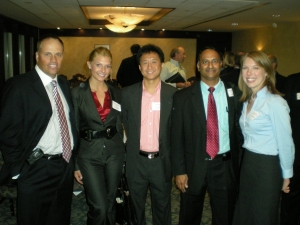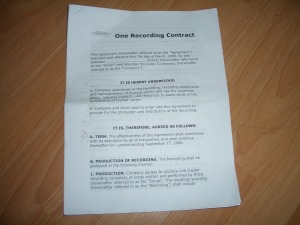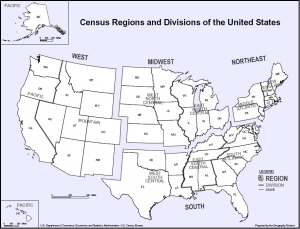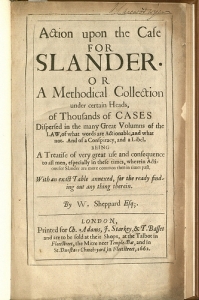By: Steven Ferrey Ferrey_LawReview_9.11


By: Steven Ferrey Ferrey_LawReview_9.11

By: Brett H. McDonnell* Introduction One way to make U.S. corporations more sustainable is to broaden the group of stakeholders whose interests are considered in making decisions. One of the most important groups of stakeholders is corporate employees, both because their own stake is critical to their well-being and because employees may value the interests […]

By: M. Ryan Calo Professor Patricia Sánchez Abril opens her article, Private Ordering: A Contractual Approach to Online Interpersonal Privacy, with a profound insight: online interpersonal privacy suffers from a case of broken windows.[1] By “broken windows,” Professor Abril refers to the well-evidenced phenomena that instances of minor disrepair can promote an overall environment of […]

By: Brain H. Bix Introduction In Bargaining in the Shadow of God’s Law: Islamic Mahr Contracts and the Perils of Legal Specialization,[1] Nathan Oman uses Islamic marriage contracts as the basis for reflecting on the advantages of thinking about contract law in general terms, rather than as a series of different and unrelated transaction types […]

By: David G. Epstein Under the leadership of Dean Blake Morant,[1] the Wake Forest Law Review (the “Law Review”) presented a symposium: Contracts in Context: Identity, Power and Contractual Justice. Robert Samuel, the Executive Forum Editor of the Law Review, has asked me to write a short scholarly[2] response[3] to one of the papers presented […]

By: Scott J. Burnham A society could enforce all promises. I recall a student from a South Pacific island who said that was the way of her society. She was appalled by my casual references to dirty promise breakers, convinced that they really were the scum of the earth.[1] On the other hand, a society […]

By: Andrew R. Klein I appreciate the opportunity to comment on the Wake Forest Law Review’s recent tort law symposium. The Law Review brought together an all-star cast of scholars who produced “must read” articles for those interested in the field. My primary concern is that excessive fragmentation of the Restatement of Torts—particularly in stable […]

By: Richard L. Cupp, Jr. The Restatement (Third) of Torts is innovative in its approach to negligence liability for land possessors in cases involving intentional trespassers, and that is a good thing. Excessive creativity in a Restatement formulation would not be helpful. If a dominant jurisdictional position on an issue exists and it makes sense, […]

By: Timothy Davis Responding to Am. Needle, Inc. v. NFL, 130 S. Ct. 2201 (2010). Recognizing these economic realities, the Court nevertheless wisely concluded that the need for NFL teams to cooperate in order to survive economically in producing the sport of football should not shield their conduct from antitrust scrutiny. I. The Intersection of […]

The pdf of the article may be accessed here. By: Robert Chesney Responding to Holder v. Humanitarian Law Project, 130 S. Ct. 2705 (2009). Holder v. Humanitarian Law Project may prove to be simply the beginning of a rich vein of emerging jurisprudence at the intersection of national security and civil liberties. Indeed, the majority’s determination […]

By: Michael L. Wells Introduction In his contribution to Wake Forest Law School’s 2009 Symposium on the Restatement (Third) of Torts, Professor Kenneth Abraham starts with two propositions, one descriptive, the other normative. The descriptive claim is that “tort law . . . is mature and largely stable,”[1] and that “[o]ver time, the law of different states will converge.”[2] […]

By: Vincent R. Johnson Introduction: Broad Territory When I talk to foreign audiences, I often emphasize the fact that in the United States, unlike in many other countries,[1] tort law is a large and dynamic field. However, despite my pressing that point, listeners may fail to appreciate the broad scope and importance of this area […]